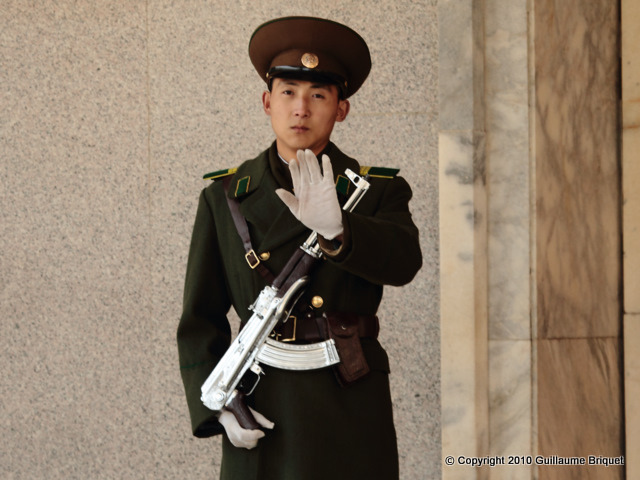Kim Jong-un Promises War
/HOLLYWOOD, California -- Could James Franco and Seth Rogen start a war? Until yesterday, that notion seemed absurd. But now, Kim Jong-un, the supreme leader of North Korea, has promised 'merciless' retribution if Columbia Pictures releases the film The Interview, which stars both Franco and Rogen.
In a nutshell, The Interview is a comedy in which the two superstar's characters team up in order to assassinate Kim Jong-un. After realizing that the press are given unparalleled access to international dignitaries during media ops and conferences, the two plan to murder the North Korean leader during an interview. Admittedly, the nature of the movie is combative, and should be expected to draw criticism, especially from the real-life man who is caricatured and assassinated in the film.
But, is the movie an "act of war," as Kim Jong-un alleges? Few think so. But for years, North Korea has inflated their international ego with empty [yet still terrifying] threats. In March 2013, Kim Jong-un warned that he would attack parts of South Korea using nuclear weaponry which he did not yet possess. Since then, Kim Jong-un has proudly planned nuclear attacks on Los Angeles and Washington, D.C.
Obviously, the film is controversial, even to many who do not sympathize with Kim Jong-un or his agenda. To me, The Interview is a more inflammatory version of Team America World Police, which featured marionette characters, including a crew of American special forces who penetrate North Korea in order to foil Kim Jong-il's fictitious attacks against America. A main difference between The Interview and its predecessor are that the new movie stars a Kim Jong-un lookalike, which is more provocative than a war between puppets. And also, the fictional plot in Team America is actually true-to-life today, where Kim Jong-un promises war against those who oppose or disrespect him, even Hollywood creatives.
Essentially, Kim Jong-un is playing a dangerous game of chicken with Columbia Pictures, which is almost certainly a lose-lose proposition for North Korea. Either Kim Jong-un engages the United States government in so-called catastrophic attacks, or Kim Jong-un will publicly undermine his brawny remarks with failure to follow through. Inaction, following such severe threats, will certainly show the limitations of Kim Jong-un, no matter his Herculean confidence. Both outcomes will augment doubts about Kim Jong-un's executive rationale and international image.
While I understand how the movie can be incendiary to a North Korea audience, I feel that making a movie, a piece of art, about assassinating a world leader is far less offensive than a national government guaranteeing nuclear warfare against the people of the world. Kim Jong-un has little room with which to point fingers, especially in terms of needless threats against oppositional nations.
It is unlikely that Columbia Pictures will withhold the release of The Interview. After all, the First Amendment protects free speech and those who practice it. But as human beings, I believe we should be promoting love and peace more than division and homicide, especially in the art we produce.
Follow Michael on Twitter Twitter: @nahmias_report Contributing Editor: @MAndrewRansom
Related articles
N Korea threatens 'merciless' response against US over Kim Jong-un film (theguardian.com)
Kim Jong-Un Calls New Seth Rogen and James Franco Movie an "Act of War" (slog.thestranger.com)
North Korea says release of Seth Rogen movie would be an act of war (blogs.vancouversun.com)
North Korea is reportedly displeased by Seth Rogen comedy about assassinating Kim Jong-un (csmonitor.com)
N. Korea threatens 'merciless' response if Kim Jong-un film is released (bnowire.com)






















